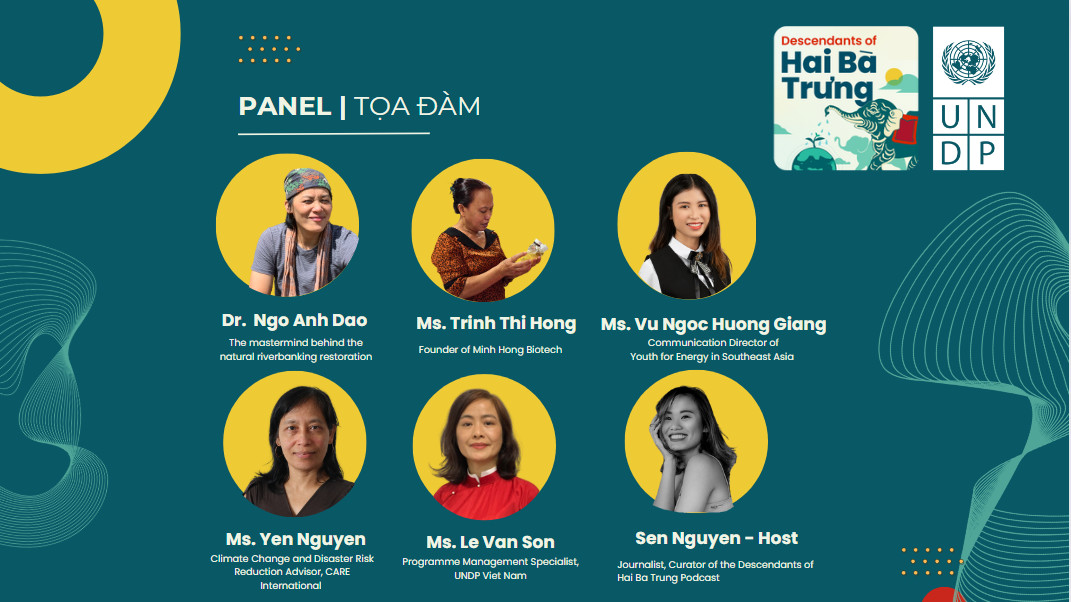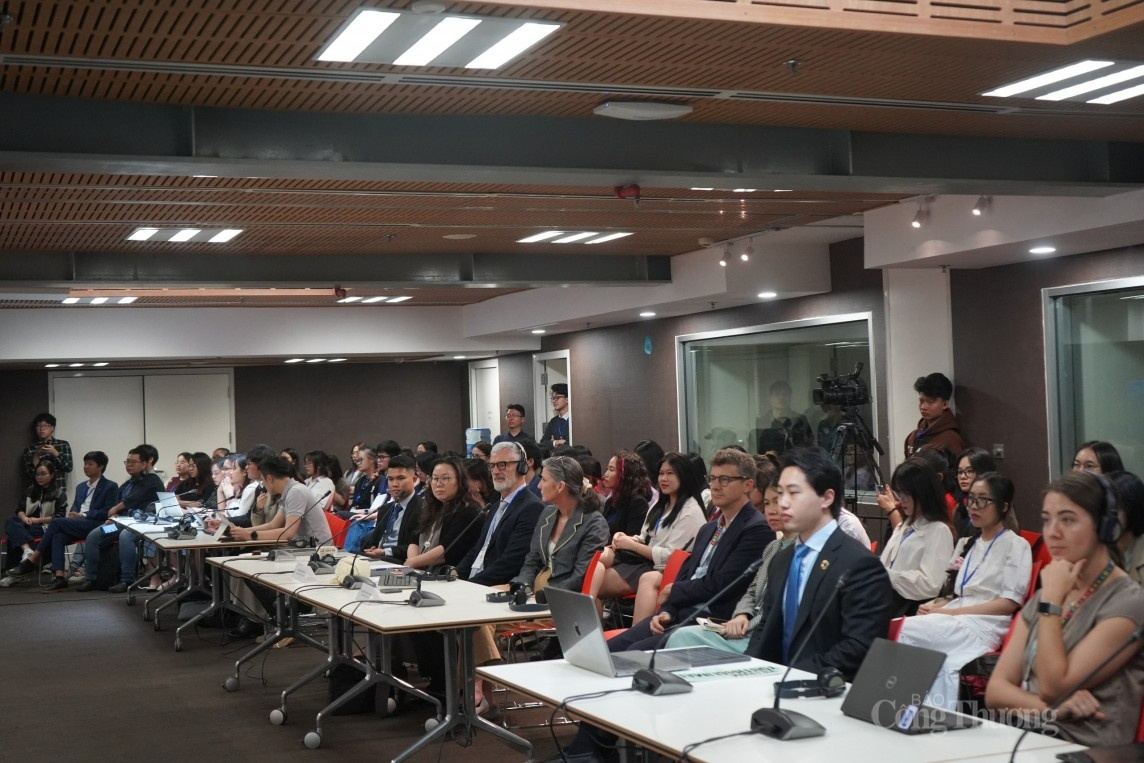Youth Policy Working Group Introduction
1. RATIONALE
The Youth4Climate Policy Working Group is a youth-led project created on the basis of the Special Report on Youth for Climate Action 2021 and 2022 as a result of youth discussions and recommendations during the report writing process. This project is also a continuation of youth-led initiatives by youth networks and organizations like YNet, VYCO, Youth4Climate TOT on Just Energy Transition, who have been actively engaged in the discussion for a strengthened Youth4Climate Policy working group in Viet Nam. As part of the Youth4Climate programme, UNDP Viet Nam, the Department of Climate Change (DCC-MONRE) and Ho Chi Minh Youth Union (HCYU) will support the creation and operation of this project.
The group is formulated by 6 youth representatives who worked on the Youth4Climate Special Report 2022 and the youth-led organizations, YNET and VYCO. Further membership recruitment will happen on a voluntary basis. Young representatives working on the Youth4Climate Special Report and youth-led organizations are considered potential candidates for this working group.
In the first 2 years 2023-2024, the YPWG will focus on rolling out activities on two key policy issues of youth concerns that will improve youth engagement in climate action in Viet Nam. The YPWG will review results and progress made to advance the Youth Road map for climate action 2021-2025 in the Youth4Climate Special Report and make a detailed plan of actions for the following years.
(i) Just Energy Transition (JET)
Following its commitments in COP 26 for net-zero carbon emissions by 2050 and a 30% reduction of methane emissions by 2030 compared to 2020 levels, Viet Nam had agreed to a Just Energy Transition Partnership with the International Partners Group including the European Union, the United Kingdom, France, Germany, the United States, Italy, Canada, Japan, Norway and Denmark on the 14th of December 2022. The JETP will mobilize an initial $15.5 billion of public and private finance over the next three to five years to support Viet Nam’s green transition. This partnership is an important indicator of Viet Nam’s commitment toward an energy transition that will maintain balanced benefits for all relevant stakeholders in the energy industry.
However, current political commitments of JETP, and policies surrounding Vietnam’s energy transition, particularly the National Power Development Plan 8, Nationally Determined Contribution (2022), National Climate Change Strategy 2050 and the draft National Adaptation Plan (2022), have not provided detailed analysis and plans to mitigate the social impacts of this transition, which will disproportionately affect the youth and disadvantaged groups due to the restructuring of the energy sector, and the growth of more climate-conscious, sustainable economic activities. This is a relevant policy gap for Vietnamese youth, who can use this opportunity to proactively engage and address this issue as they will soon be the primary workforce in the transitioning energy sector .
The YPWG aims to understand the impacts of Viet Nam’s Just Energy Transition on youth lives and education; research and provide policy suggestions that will improve support for the youth in this area.
(ii) Climate Change Education
Climate change education in Viet Nam has been implemented as extra-curricular activities or locality-specific courses for secondary school students since 2014, and integrated into main courses since 2012 (Hiển, N.T. 2019, Journal of Education). These activities focus on raising awareness for students on climate change, but further skill-building for environmental protection or climate change adaptation have yet to be taught (UNDP Viet Nam 2022).
In the context of strengthened climate change commitments and renewed national goals, Viet Nam will gradually shift toward a more climate-smart economy. Sixty-five million new jobs could be created by 2030 in this transition (global estimate), which will generate shifts in job demand across sectors, but also requires new skills for existing jobs (The New Climate Economy Report 2018). Climate change education will therefore be an important component to preparing the youth for the future.
The YPWG aims to work with the Ministry of Education and Training (MOET) as well as youth networks from high schools and universities to understand youth experiences in the past, as well as their wants and needs for education in the future.
2. OBJECTIVES
The YPWG will organize youth to connect different agencies to:
- Raise youth voices in the policy formulation and implementation process, through the assessment of the impacts of current policies on Vietnamese youth and the initiation of social media campaigns and youth-centered events;
- Research and provide policy recommendations on (i) JET and (ii) CC education for the youth, so as to build the minimum skill-sets for climate responsive actions (including adaptation and mitigation) and propose specific support mechanisms to improve youth access to future career opportunities and adopt a greener lifestyle;
- Build capacity of youth and youth network for meaningful youth participation and engagement in policy making process in Viet Nam, particularly on the policy areas that youth are most concerned about.
In addition, the group aims to operate as a platform that will mobilize youth coordinated efforts in policy advocacy to inform MONRE, MOET, UNDP, HCYU and NGOs to design and roll-out more meaningful projects for the youth.
3. CONTACT: Viet Nam Youth4Climate Facebook Page





